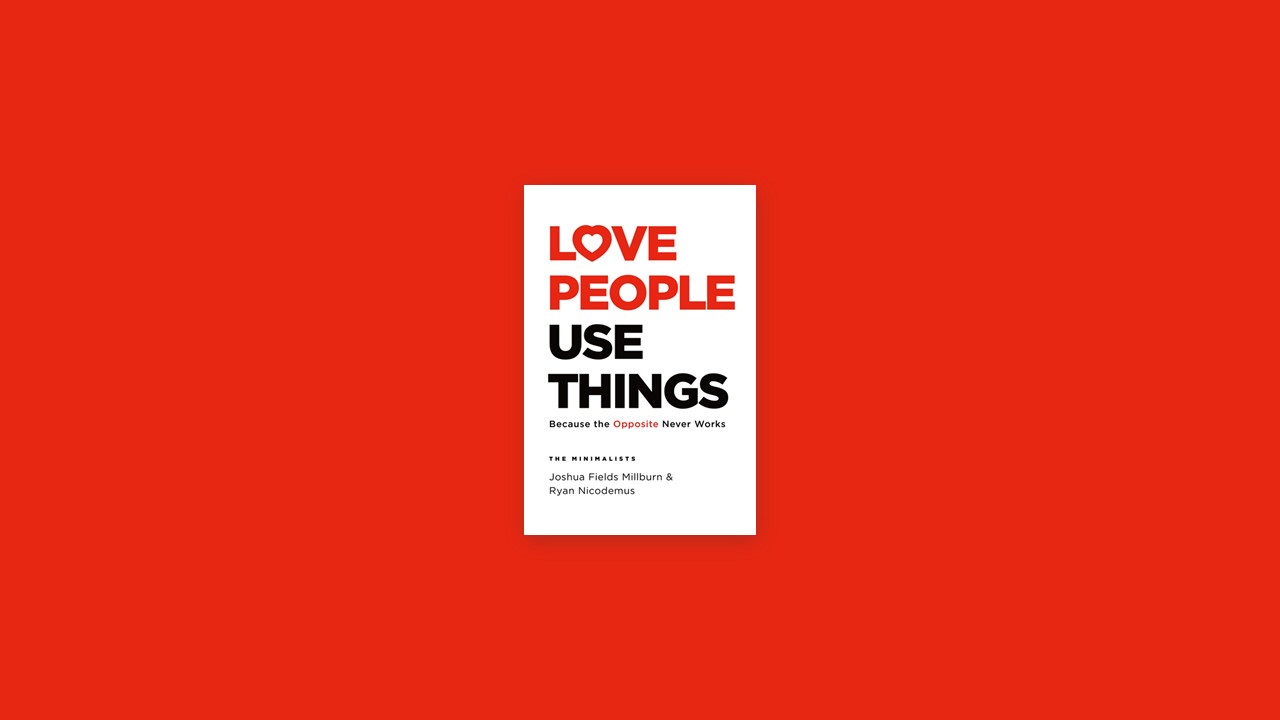Relationship 1 | Stuff
Create your “stuff budget.” To help regulate your things, create a stuff budget by following these steps:
- Choose a room you want to declutter.
- Open your journal to a fresh page, and at the top of the page write the three different categories: Essential, Nonessential, and Junk (No Junk Rule).
- List every item in that room under its appropriate category.
- Ask yourself whether everything in the Essential category honestly fits there. If not, recast it as Nonessential or even Junk. Repeat with the remaining categories.
- Relinquish your stuff. At this point, you will have leftover junk that needs to be donated or recycled. It’ll be easy to get caught up in emotional attachments. So, if you’re attached to a particular item but you know it must go, think of how you would feel if it spontaneously combusted. Or imagine how it could add far greater value to someone else’s life. If you are afraid that one day you will forget the memory associated with the item, take a picture to help trigger the memory in the future.
- Find your support. Today, find at least one person who will support you in your journey: a friend, family member, neighbor, colleague. Or you can find online communities of open-minded people willing to help (Minimalist.org is one such resource). Also, there’s always the option of hiring a professional organizer in your local area; they understand that the best way to organize is to let go.
Relationship 2 | Truth
Acknowledge. Write down the lies you want to get out in the open.
Get uncomfortable. Out of the lies you wrote down, which one makes you feel the most uncomfortable? How will you confront that lie?
Eliminate. Today, choose one lie that you are willing to stop carrying on. What actions will you take to eliminate this lie?
Apologize. Whom have you hurt by lying? Reach out to them and apologize. How will the experience affect the relationship moving forward?
Heal. Ask for forgiveness from those who have been affected by your lies. Understand you are not entitled to forgiveness, and it may take some time to be forgiven, but now true healing can begin.
Relationship 3 | Self
The more you appreciate what you have, the easier it will be to let go of stress and anxiety. Today, write down the names of ten people who have had a positive effect on your life, and list ten things you are grateful for in your life currently.
Pause. Find ways to pause each day: meditation, walks, breathwork, and other self-care rituals that will help you slow down. Schedule five minutes each day to meditate and twenty minutes to walk. Or schedule any other form of self-care that works for you.
Identify habits. Make a list of the healthy habits you want to adopt.
Behave healthfully. Incorporate a health regimen into your life that works for you. Health is relative, and it will take some time and effort to find the best fit, so start by simply choosing one item on the list of healthy habits and incorporate it into your life today.
Get accountable. Take action each day toward your optimal health. There are two things that will help ensure you take action: (1) find an accountability partner, and (2) schedule these healthy activities as commitments on your calendar.
Relationship 4 | Values
Understand your values. It is crucial to write down all of your values, even the imaginary ones.
Find a partner. Choose someone with whom you can review your values. Ask them to participate with you. Reviewing your values with someone will provide accountability, reinforce your values, and inspire you to live up to what you value.
Get clear. After you’ve completed the worksheet and reviewed it with your accountability partner, get clear on what values you are currently ignoring and/or compromising. How will you ditch the compromises and start taking actions and making decisions that align with your values?
Identify obstacles. What are your biggest obstacles? Write them down, and then make a plan for how you will address them. If you get stuck, you may want to ask a friend or family member for guidance—or consult a professional (a therapist, doctor, or coach, for example).
Recognize consequences. What are you sacrificing when you don’t live up to your values? Write down the consequences of those sacrifices.
Relationship 5 | Money
Adjust your approach. In your journal, briefly describe what money means to you: What does money provide for you? What do you want it to provide? How does money control your life? How much money do you think you need to be happy? What could you do for others with money? After you’ve written your thoughts, consider whether your current approach warrants any adjustments, and then write down what actions will affect those positive changes.
Unravel your influences. How was your attitude regarding money formed? To explore this, first write down the mistakes you’ve seen people around you make with their finances, followed by the fruitful decisions you’ve seen people make. What’s your first memory involving money? What entertainment are you consuming that might influence your view of money?
Locate your freedom. Write down what financial freedom looks like for you. Be clear on when you’ll get out of debt, when you’ll retire, where you’ll live, how you’ll spend your days, and how you’ll contribute to your community
Form your budget. Create a budget today. Financial freedom is not obtainable without one.
Simplify your spending. Start spending your money like a minimalist. Minimalists buy new possessions intentionally. To do so, we must ask better questions: Will this thing add value to my life? Can I afford to buy it without going into debt? Is this the best use of this money?
Relationship 6 | Creativity
Find your creativity. It’s important you get clear on what you want to create in your life. Write down five things you’d like to create. To help you with this list, ask yourself these questions:
- How can I better serve others?
- What problems do you want to solve?
- Where is the greatest need for a solution?
Concentrate your creativity. Now you need to explore your ideas further to help narrow down what creation you’re going to focus on. For each idea you’ve already written, now jot down the answer to these questions:
- What makes this creation interesting or unique?
- How will this add value to others?
- What steps are necessary to implement my creation?
Cultivate your creativity. Now it’s time to choose one creative endeavor to cultivate into a passion. If one of your five creative ideas isn’t jumping out as the top choice, throw them into a hat and choose one randomly. (Before grabbing one, think about which one you hope comes out of the hat—that’s the one you should choose.)
Remove your distractions. Now that you have chosen a creation to work on, it’s time to get focused. To do this, you must set up boundaries between you and whatever is getting in the way of creating. To help set these boundaries, write down what distractions take up most of your time (commitments, technology, social media, and the like). Be honest. Then, for each distraction, write down the answers to these questions:
- Do you need this distraction in your life? If so, why?
- How much time are you dedicating to this distraction now? What would be a more appropriate amount of time?
- If you say no to this distraction, what can you say yes to that truly matters?
Practice your creativity. Since you have freed up time by removing distractions from your environment, you can now fill that time with creating. Write down the answers to these questions to help you form a plan to create more:
- How often will you create? Can you commit to a daily practice?
- Who will hold you accountable?
- When will you start?


